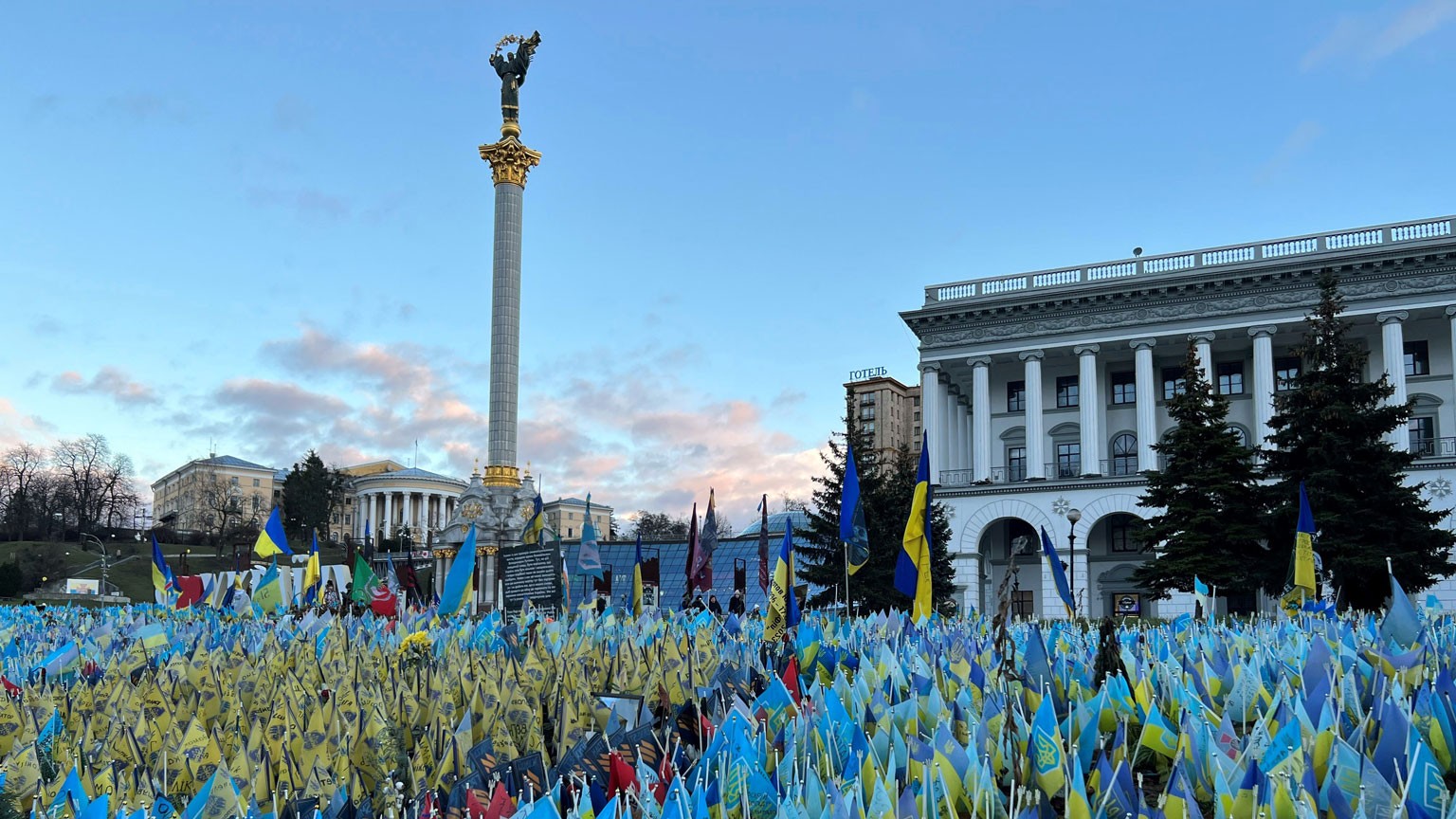In the survey, conducted two years after Russia launched its full-scale invasion, 24 percent of respondents said peace negotiations should begin, double the number of a year ago. But a majority, 68 percent, still said thorough resistance should continue until the country recaptures its territory.
NHK conducted the survey with Rating, a group based in the Ukrainian capital of Kyiv, by phone from February 9 to 11. People aged 18 or older were targeted across Ukraine, except for some areas in the eastern part of the country and the southern region of Crimea, which are occupied by Russia.
What was lost in the war?
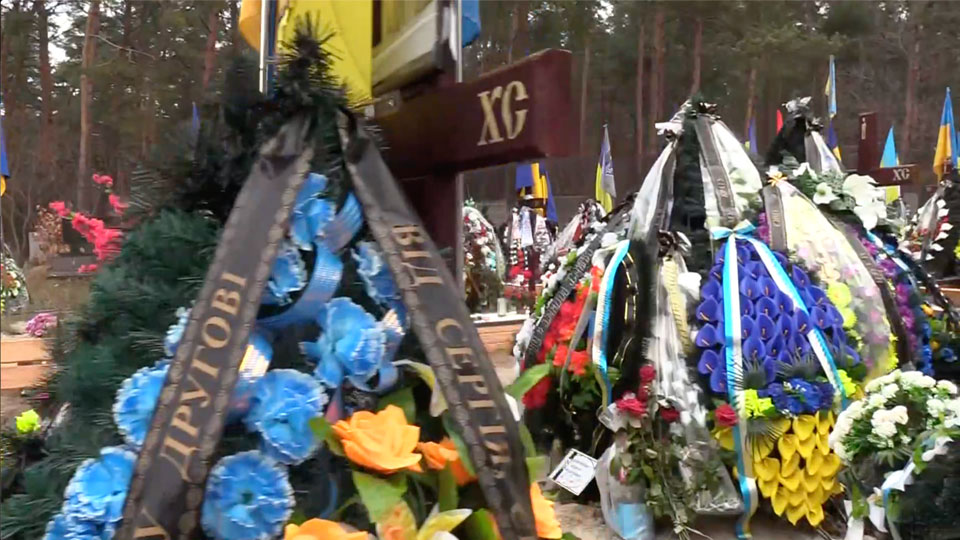
Asked "what losses have you suffered as a result of the war?" 34 percent said their health has deteriorated and 29 percent said they have lost a close person, a rise of 12 percentage points from last year.
25 percent said their income has dropped, 25 percent said they have been separated from their families, and 19 percent said they have lost their jobs.
By region, many people in the eastern and southern parts of the country, where fighting is fierce, said they lost their jobs or were separated from their families.
What are the physical and mental effects?
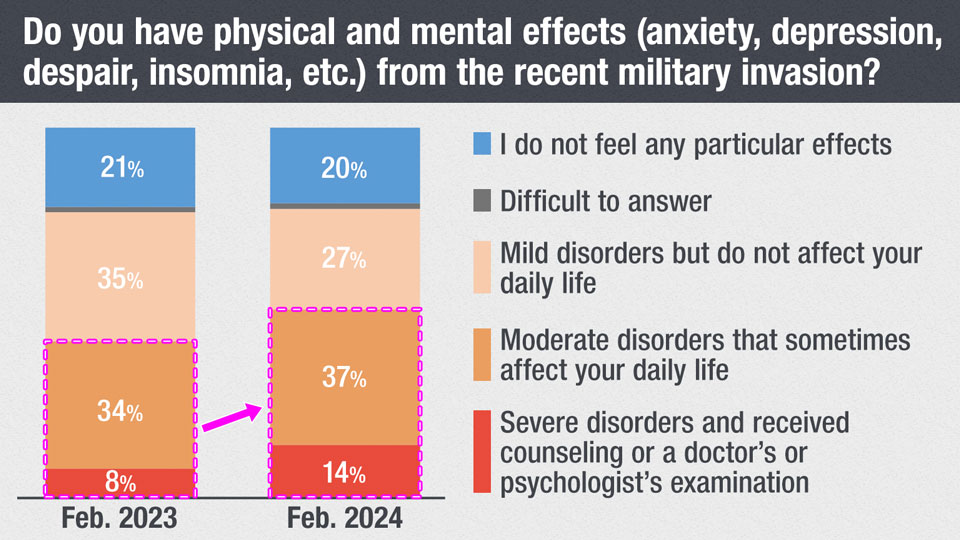
14 percent of respondents said that they received counseling or medical examinations due to severe physical and mental disorders, up six points from last year. 37 percent said that they have moderate disorders that sometimes affect their daily lives, up three points from last year.
More than half of the respondents said that they feel unwell enough that it could have an impact on their daily lives.
How do you evaluate the situation right now?
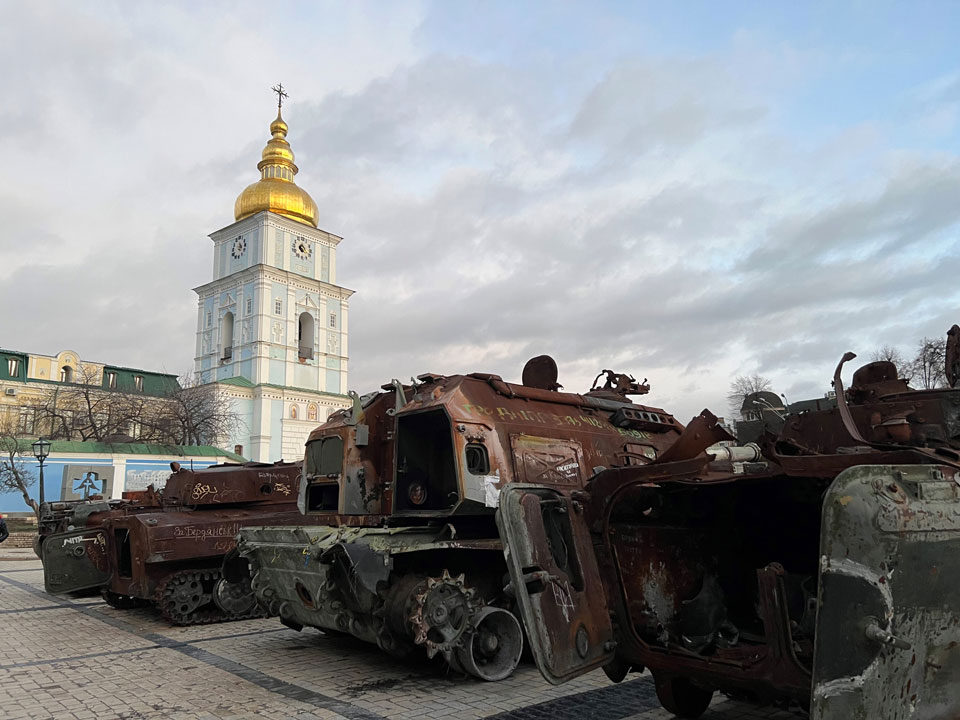
Three percent of respondents answered "we're getting close to victory," and 51 percent said "we're getting closer to victory step by step."
But 30 percent said the situation was stalemated, while eight percent said things were worsening little by little and four percent said it was worsening.
Among young people between the ages of 18 and 35, 53 percent said things were stalemated or getting worse, exceeding the 44 percent who said victory was closer.
What do you think is the cause of the current situation?
When asked why they thought the situation was stalemated or getting worse, 42 percent blamed a "lack of cohesion and leadership in the Ukrainian government" and 30 percent said a lack of weapons support from the West.
10 percent said "a lack of pressure and coordination by the international community against Russia."
Ceasefire or continued fighting?
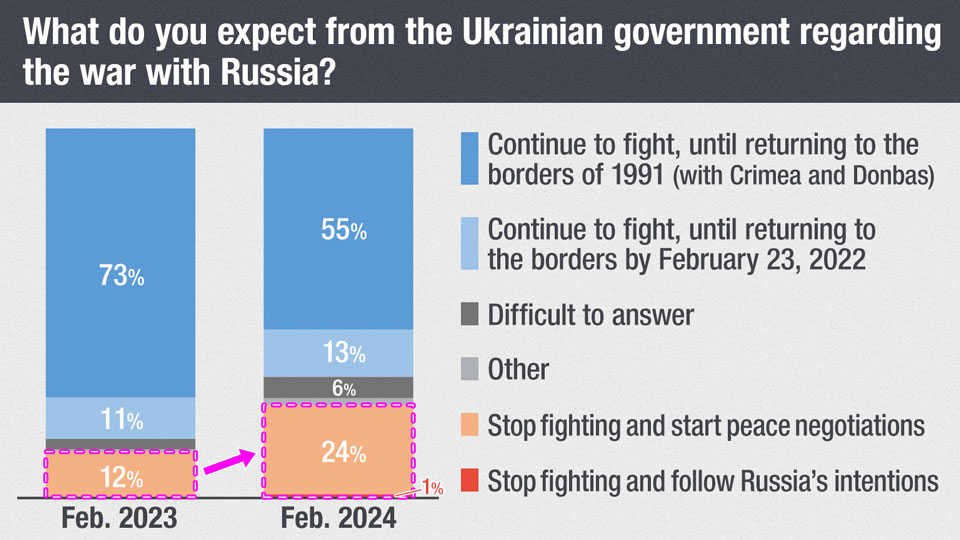
Asked what they expect from the Ukrainian government, 55 percent said that they will continue fighting until they regain the borders of 1991, when the Soviet Union collapsed. 13 percent said they will continue fighting until the country returns to the situation as of February 23 in 2022, before the start of the invasion. A total of 68 percent said that the country should continue all-out resistance until it recaptures its territory.
On the other hand, 24 percent of respondents said they should stop fighting and start peace negotiations, twice that of a year ago. Of those who thought peace talks should start, 18 percent were aged 51 or older, up six points from last year, and 27 percent aged 36 to 50, up 14 points. 31 percent of those aged 18 to 35 agreed, up 20 points.
Though many people believe that thorough resistance should continue, some — mainly young people — are calling for a ceasefire.
What can Japan do?
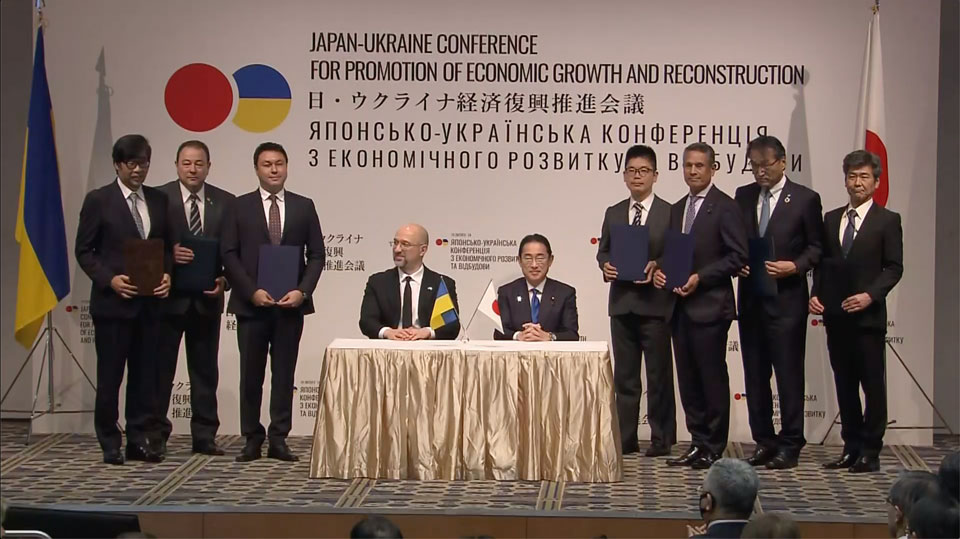
Asked how Japan can help Ukraine at the international level, 27 percent said by promoting an increase of military support from Western countries, 26 percent said by supporting reconstruction, 22 percent said by strengthening sanctions against Russia, and 18 percent said by mediating ceasefire negotiations.
Japan has been providing humanitarian support to Ukraine, including an additional one billion dollars from the supplementary budget for this fiscal year. But half of respondents said they had never heard of Japan's humanitarian aid to Ukraine. The number who had increased from last year, with 35 percent saying they had, up four points. 15 percent said they knew it well, up eight points from last year.
Expert: The war will continue into a fourth year
Koizumi Yu, an associate professor at the University of Tokyo's Research Center for Advanced Science and Technology, said the war will still continue for a long time. Neither side will be able to reach a decisive result in the third year, making it certain conflict will go on for a fourth year.
Koizumi said Russia is stepping up its offensive, but it is also clear that the Ukrainian military doesn't have the ability to carry out a large-scale offensive for the time being. In addition, the Ukrainian military exhausted a considerable amount of its forces in last year's counteroffensive.
However, he said the Russian side also lacks the ability to carry out a large-scale and coordinated offensive. Even if they gradually expand the areas under their control, it will be difficult for the country to take decisive action to change the course of battle all at once. Some cities may come under the control of the Russian military, but that will not prevent Ukraine from continuing the war.
He said it is difficult for the two sides to start ceasefire talks at present, for a number of reasons. First, the reality of the military situation is totally unsatisfactory from Russian President Vladimir Putin's point of view. Then if Ukraine fights until it stops organized resistance as a country, there is a high risk that compromise will become impossible. Finally, it is difficult for Ukraine to agree to a ceasefire since it is on the brink of survival as a country. The only way to hold talks is to create a militarily advantageous situation for Ukraine.
US is a key supporter
As for the future, Koizumi said that continuing military support from the United States, Ukraine's largest supporter, is key. He said that if an aid bill for Ukraine passes the Congress by this spring, Ukraine will go on the offensive again in 2025 or later to take back land from Russia.
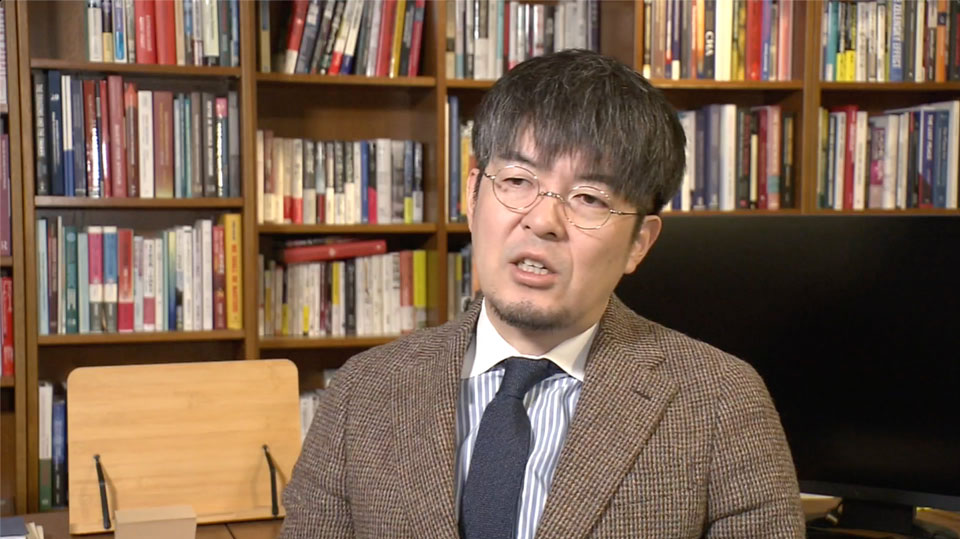
But if Ukraine can't receive additional support from the US, it will continue fighting with its limited support from the European Union and others. Continuing to fight is not impossible, but it will take more time than expected, he said. It is also possible that the will to resist by Ukrainian people and support from neighboring countries will collapse before that.
